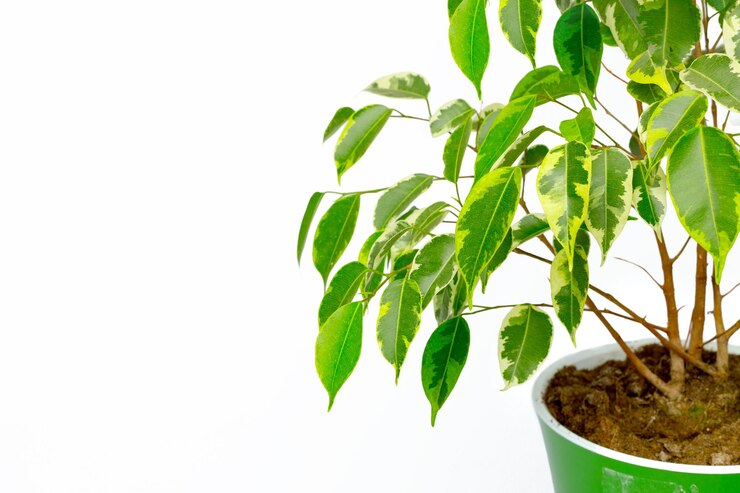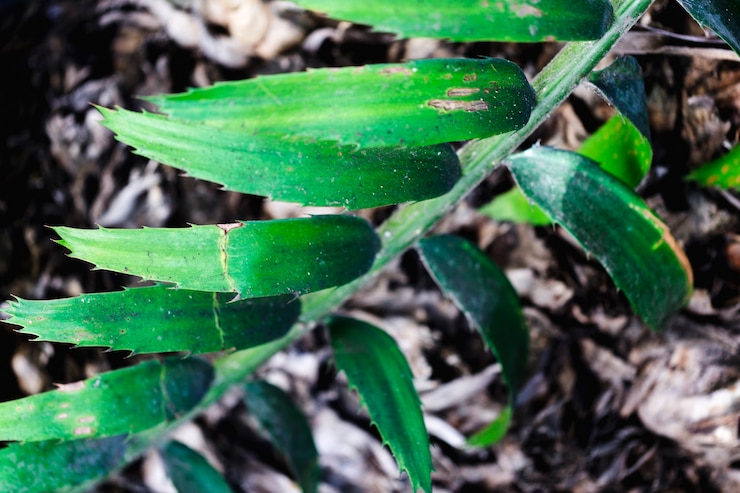आयुर्वेदिक डॉक्टर से प्रश्न पूछें और निःशुल्क या भुगतान मोड में अपनी चिंता की समस्या पर ऑनलाइन परामर्श प्राप्त करें। 2,000 से अधिक अनुभवी डॉक्टर हमारी साइट पर काम करते हैं और आपके प्रश्नों का इंतजार करते हैं और उपयोगकर्ताओं को उनकी स्वास्थ्य समस्याओं को हल करने में प्रतिदिन मदद करते हैं।
Twak Plant: Uses, Benefits, and Scientific Insights

Introduction
Imagine a simple, leafy green that has been used in various cultures for centuries, cherished not just for its subtle flavor but also for potential health benefits. That is the allure of the Twak Plant—an herb believed to hold therapeutic properties and used in traditional medicine and modern research alike. Growing scientific interest in the plant has led to numerous studies exploring its bioactive compounds, signaling a promising future in healthcare and wellness. In this article, we dive into the scientific underpinnings, traditional knowledge, and current research findings related to the Twak Plant. From its historical use in folk remedies to cutting-edge clinical trials, you will learn everything you need to know about harnessing its potential safely and effectively.
Table of Contents
What Is the Twak Plant?
The Twak Plant is an herb commonly found in tropical and subtropical regions. Though it varies in appearance depending on the specific cultivar, most Twak Plant varieties have elongated green leaves and small white or yellowish flowers. In many cultures, it is grown as a backyard herb or purchased fresh in local markets, reflecting its deep-rooted presence in daily life.
-
Scientific Name: The Twak Plant’s scientific genus and species can differ by region, as local naming conventions frequently group similar plants under the “Twak” umbrella.
-
Classification: Typically classified as an annual or short-lived perennial, the Twak Plant has a rapid growth cycle.
-
Aroma and Flavor: Many enthusiasts describe its aroma as mildly sweet with a grassy undertone, making it an appealing addition to soups, stews, or teas.
Because the Twak Plant is so widespread, it can be found in home remedies, traditional medicine preparations, and dietary regimens across multiple cultures. Researchers are actively investigating how the plant’s phytochemistry might translate into modern healthcare applications.
Traditional Uses and Cultural Significance
Historically, the Twak Plant has featured prominently in folk medicine systems across Asia, Africa, and parts of South America. Local communities valued it for:
-
Digestive Support: Traditional healers often recommended Twak Plant infusions to alleviate mild gastrointestinal discomfort.
-
Skin Applications: Poultices made from its leaves were sometimes applied to the skin to help soothe minor irritations.
-
Immune Function: In certain regions, it was believed to bolster the body’s natural defenses, particularly during seasonal weather changes.
-
Daily Well-Being: In many households, Twak Plant leaves were added to cooking for their subtle flavor and purported nutritional benefits.
Some cultures even used the Twak Plant in ceremonial or spiritual practices, illustrating its multifaceted significance beyond just a medicinal herb. While these uses provide valuable insight, it is crucial to approach them in the context of contemporary scientific scrutiny.
Active Compounds and Nutritional Profile
Modern pharmacological research into the Twak Plant has identified various phytochemicals that may be responsible for its potential benefits. Although ongoing studies are refining what we know, some commonly reported compounds include:
-
Flavonoids: Known for their antioxidant and anti-inflammatory properties.
-
Terpenoids: Often linked to antimicrobial and immune-modulatory effects.
-
Alkaloids: May influence physiological processes like metabolism and cardiovascular function.
-
Essential Oils: These compounds can affect aroma, taste, and possibly minor therapeutic actions.
In addition to these phytochemicals, preliminary nutritional analyses suggest that the Twak Plant could be a source of vitamins A and C, minerals like iron and calcium, and dietary fiber. However, the concentrations can vary significantly based on factors like soil quality, harvest time, and storage conditions.
Potential Health Benefits
Research on the Twak Plant is still in its early stages, but existing data suggest several potential health benefits:
-
Antioxidant Activity
Flavonoids and polyphenols in the Twak Plant have been shown in laboratory settings to neutralize free radicals. Free radicals are unstable molecules that can damage cells, contributing to chronic diseases such as heart disease and certain cancers. By managing oxidative stress, the Twak Plant may help support overall cellular health. -
Anti-Inflammatory Effects
Inflammation is a natural response by the body’s immune system, but chronic inflammation can lead to a range of health issues, from joint pain to cardiovascular problems. Some studies suggest that extracts from the Twak Plant contain compounds that could modulate inflammatory markers, potentially aiding in the management of mild inflammatory conditions. -
Digestive Support
Traditional usage often involves using Twak Plant leaves or extracts for mild gastrointestinal discomfort. In vitro research and limited animal studies indicate that it might help regulate gut motility and microbial balance, though more human trials are needed to confirm these findings. -
Immune Regulation
Preliminary studies on animals have hinted that the Twak Plant may influence immune cell activity. Researchers are particularly interested in whether its compounds can help the body respond to infections without overstimulating the immune system. -
Skin Health
Ointments and compresses made from the Twak Plant’s leaves have been used to calm minor skin irritations. Certain constituents may have antibacterial or anti-inflammatory properties, offering potential relief for conditions like eczema or dermatitis, though robust clinical data are required for conclusive recommendations.
Clinical and Preclinical Research
Despite a rich history of traditional use, large-scale clinical research on the Twak Plant remains limited. Here is a summary of what has been studied so far:
-
Preclinical Studies:
-
Animal Models: A study published in the Journal of Ethnopharmacology (2019) found that Twak Plant extracts demonstrated anti-inflammatory effects in rodents with induced arthritis.
-
In Vitro Research: Test-tube studies have identified promising antimicrobial properties, particularly against certain strains of bacteria.
-
-
Clinical Trials:
-
A pilot study in a regional hospital (2021) looked at the plant’s role in reducing mild gastrointestinal discomfort. Results suggested that Twak Plant infusions might help improve bowel regularity. However, the sample size was small, and more extensive research is needed.
-
Researchers at a university medical center initiated a Phase I trial to explore the safety profile of Twak Plant extract in healthy adults. Early results indicate it is generally well-tolerated, but larger and more controlled studies are essential for definitive conclusions.
-
-
Systematic Reviews:
-
No large-scale meta-analysis or Cochrane review has yet been published specifically on Twak Plant. However, the handful of smaller studies available generally point to a positive, though preliminary, therapeutic potential.
-
How to Use Twak Plant Safely
If you are interested in trying the Twak Plant as part of your wellness routine, here are a few guidelines:
-
Select Fresh or Reputable Sources:
-
If growing it at home, ensure the soil is free from contaminants like heavy metals or pesticides.
-
When purchasing, opt for established brands or trusted local markets to minimize the risk of adulteration.
-
-
Consider Different Forms:
-
Fresh Leaves: Often added to soups, stews, or brewed into teas.
-
Dried Leaves or Powder: Can be encapsulated or used as a seasoning.
-
Standardized Extracts: Usually available through herbal supplement companies with known quality-control measures.
-
-
Dosage Recommendations:
-
Standardized doses do not yet exist due to limited clinical data.
-
Start with small amounts and observe how your body reacts, gradually adjusting as advised by a healthcare professional.
-
-
Combine with a Balanced Diet:
-
Like any supplement or herbal remedy, the Twak Plant works best as part of a holistic lifestyle that includes balanced nutrition, regular exercise, and sufficient rest.
-
Possible Side Effects and Precautions
While the Twak Plant is generally considered safe when consumed in moderate amounts, caution is always advisable:
-
Allergic Reactions: Individuals with sensitivities to plants in the same family may experience mild allergic reactions such as itching, rashes, or nasal congestion.
-
Drug Interactions: Because of its potential impact on inflammation and immune function, consult your healthcare provider if you are taking immunosuppressive drugs, anticoagulants, or other prescription medications.
-
Pregnancy and Breastfeeding: There is insufficient evidence about the safety of Twak Plant during pregnancy or breastfeeding. Always consult a qualified healthcare provider for personalized guidance.
-
Underlying Health Conditions: If you have an autoimmune disorder, gastrointestinal disease, or any chronic illness, seek professional medical advice before incorporating new herbal supplements.
Frequently Asked Questions (FAQ)
-
Is the Twak Plant scientifically proven to treat any diseases?
-
Current evidence is preliminary, with animal models and small-scale human trials indicating some beneficial effects. More robust clinical studies are needed before the Twak Plant can be formally recognized as a treatment for any specific condition.
-
-
Can I use Twak Plant in my daily cooking?
-
Yes, many people consume it in soups, teas, or stir-fries. If you enjoy its flavor and do not have any adverse reactions, this can be a delicious way to add a potential nutritional and therapeutic boost to your meals.
-
-
Where can I find reliable information or research on Twak Plant?
-
Databases like
PubMed and journals such as the Journal of Ethnopharmacology often publish the latest studies. Reputable medical institutions and universities may also provide updates on ongoing research.
-
-
Are supplements better than fresh leaves?
-
Supplements offer standardized extracts, potentially providing a consistent dose of active compounds. Fresh leaves contain the full spectrum of the plant’s constituents, which may have synergistic effects. The choice depends on personal preference, availability, and guidance from a healthcare professional.
-
Conclusion
The Twak Plant stands at the intersection of age-old wisdom and modern science. Although it has long been used in traditional medicine for digestive support, immune regulation, and skin health, ongoing research continues to explore its full potential. Early results are promising, indicating beneficial antioxidant and anti-inflammatory properties. Nevertheless, a consensus on dosing, safety, and efficacy awaits larger clinical trials and systematic reviews.
If you are intrigued by the potential benefits of the Twak Plant, consider incorporating it into your diet or exploring commercially available extracts—under the guidance of a qualified healthcare provider. As with any herbal supplement, a balanced lifestyle and a scientifically informed approach can optimize your experience.
Call to Action:
-
Share this article with friends and family who might be curious about herbal remedies.
-
Comment below with your experiences or questions about Twak Plant.
-
Subscribe to stay updated on the latest research, tips, and expert insights on natural health and wellness topics.
Disclaimer
This article is for informational purposes only and should not be considered medical advice. Always consult with a qualified healthcare professional before making any changes to your health regimen, including the use of dietary supplements or herbal remedies. Neither the author nor the publisher assumes any responsibility for the potential consequences of any treatment, procedure, or dietary modification based on the information provided herein. For urgent health matters, please contact your nearest healthcare provider.



